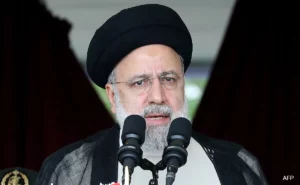Iran Israel War: Iran Fires Around 110 Ballistic Missles, 30 Cruise Missile to Tel Aviv

Iran, Israel, missile strikes
Overview of the 2024 Iran-Israel Conflict
The ongoing conflict between Iran and Israel has escalated significantly, particularly with the recent missile strikes launched by Iran against Israeli targets. On October 1, 2024, Iran fired approximately 180 missiles into Israel, marking a dramatic intensification of hostilities in the region. This action is part of a broader confrontation that has seen both nations engaging in direct military actions, a departure from their historical proxy warfare.
Background
The roots of the Iran-Israel conflict can be traced back to ideological differences and regional power struggles. Iran, a predominantly Shia Muslim nation, opposes Israel’s existence and supports various militant groups like Hezbollah in Lebanon, which actively confronts Israeli forces. Conversely, Israel views Iran as a primary threat to its national security, particularly due to its nuclear ambitions and support for anti-Israel militant organizations.
Key Events Leading to Current Hostilities
- Israeli Airstrike on Iranian Consulate: On April 1, 2024, Israel conducted an airstrike on an Iranian consulate in Damascus, killing several high-ranking Iranian officials. This attack was perceived as a significant provocation by Tehran and set the stage for retaliatory measures.
- Operation True Promise: Following the consulate strike, Iran launched Operation True Promise on April 13-14, 2024. This operation involved a coordinated attack using over 300 drones and missiles aimed at Israeli military installations, resulting in injuries among Israeli civilians and damage to military assets.
- Assassination of Key Figures: The assassination of Hassan Nasrallah, the leader of Hezbollah, on September 30, 2024, further escalated tensions. His death prompted Iran to vow retaliation against Israel.
The Recent Missile Attacks
On October 1, 2024, Iran executed one of its largest missile attacks against Israel in recent history:
- Types of Missiles Used: The assault included around 110 ballistic missiles and 30 cruise missiles, targeting various locations across Israel.
- Israeli Response: The Israeli military reported that many of these missiles were intercepted by their air defense systems. However, some managed to reach their targets, causing injuries and damage in several cities.
- Military Operations in Lebanon: Concurrently with the missile strikes, Israeli ground forces initiated limited operations in southern Lebanon aimed at dismantling Hezbollah’s infrastructure.
Casualties and Damage
The missile strikes resulted in several injuries among Israeli civilians and damage to military installations. Reports indicate that at least 95 individuals were killed in related airstrikes across Lebanon as Israel responded to the escalating conflict. The humanitarian situation is dire, with significant displacement occurring within Lebanon due to ongoing hostilities.
International Reactions
The international community has expressed concern over the escalating violence:
- United Nations: The UN has called for restraint from both sides and warned about the potential for a broader regional conflict.
- United States Position: U.S. officials have reiterated Israel’s right to defend itself while cautioning against actions that could lead to mission creep or wider warfare.
Conclusion
The recent missile attacks by Iran mark a critical juncture in the long-standing conflict with Israel. As both nations engage in direct military confrontations rather than relying solely on proxy warfare, the potential for wider regional instability increases. Diplomatic efforts will be crucial in mitigating further escalation and addressing the humanitarian crises resulting from this conflict.






